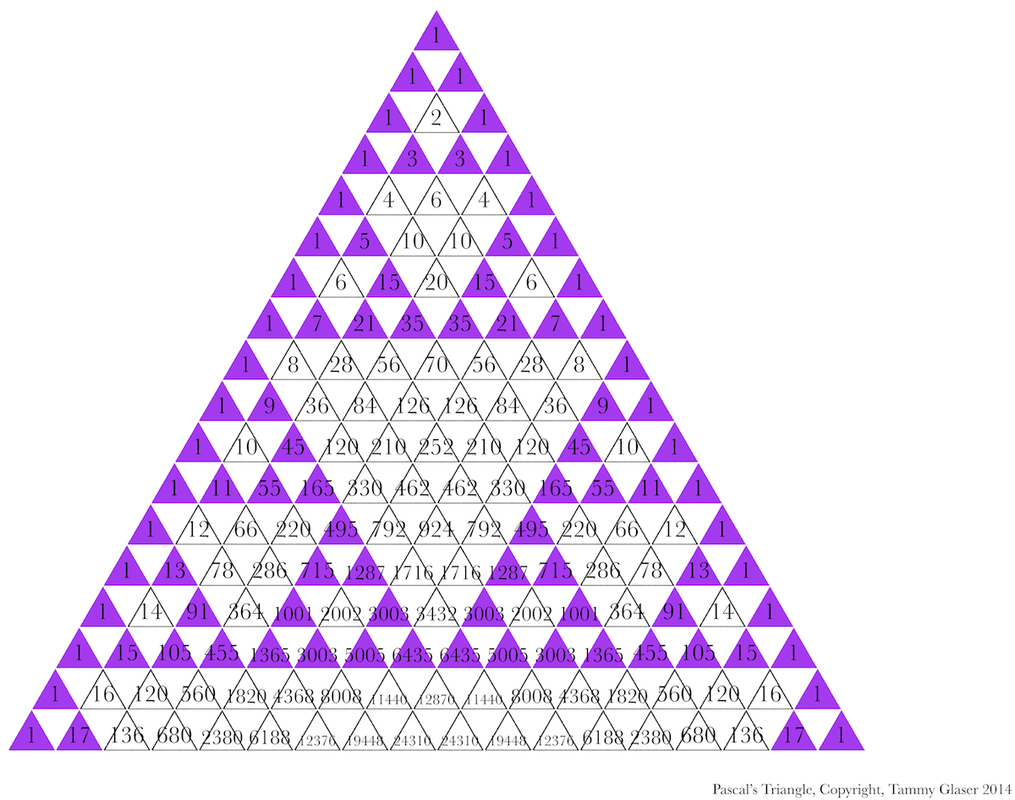Inspired by Pi Han
Find the largest n < 1 0 , 0 0 0 such that k = 0 ∏ n ( k n ) is an odd number.
The answer is 8191.
This section requires Javascript.
You are seeing this because something didn't load right. We suggest you, (a) try
refreshing the page, (b) enabling javascript if it is disabled on your browser and,
finally, (c)
loading the
non-javascript version of this page
. We're sorry about the hassle.
2 solutions
CHALLENGE MASTER NOTE: Prove(or disprove): For a certain n , if k = 0 ∏ n ( k n ) is an odd number then it must be divisible by all the odd numbers less than n .
 (Odd numbers are coloured in)
(Odd numbers are coloured in)
k = 0 ∏ n ( k n ) is the product of all the numbers in a row of Pascal's triangle. In order for the product to be odd, all numbers in that row must be odd. Looking at the picture, this occurs in the 2 a − 1 th rows.
The highest power of 2 smaller than 1 0 0 0 0 is 2 1 3 = 8 1 9 2 . The row before that is 8 1 9 2 − 1 = 8 1 9 1 , so n = 8 1 9 1 .
For this product to be odd, we will require that each and every coefficient ( k n ) be odd. Now by a Lucas' Theorem , we are thus looking for the largest n < 1 0 0 0 0 which has a base 2 expansion that consists only of 1 's. Since 2 1 3 = 8 1 9 2 is the highest power of 2 less than 1 0 0 0 0 we know then that 8 1 9 2 − 1 = 8 1 9 1 is the value of n we are looking for, (as its base 2 expansion consists of only 1 's, and any value 8 1 9 2 ≤ n ≤ ( 2 1 4 − 2 ) = 1 6 3 8 2 will have at least one 0 in its base 2 expansion).